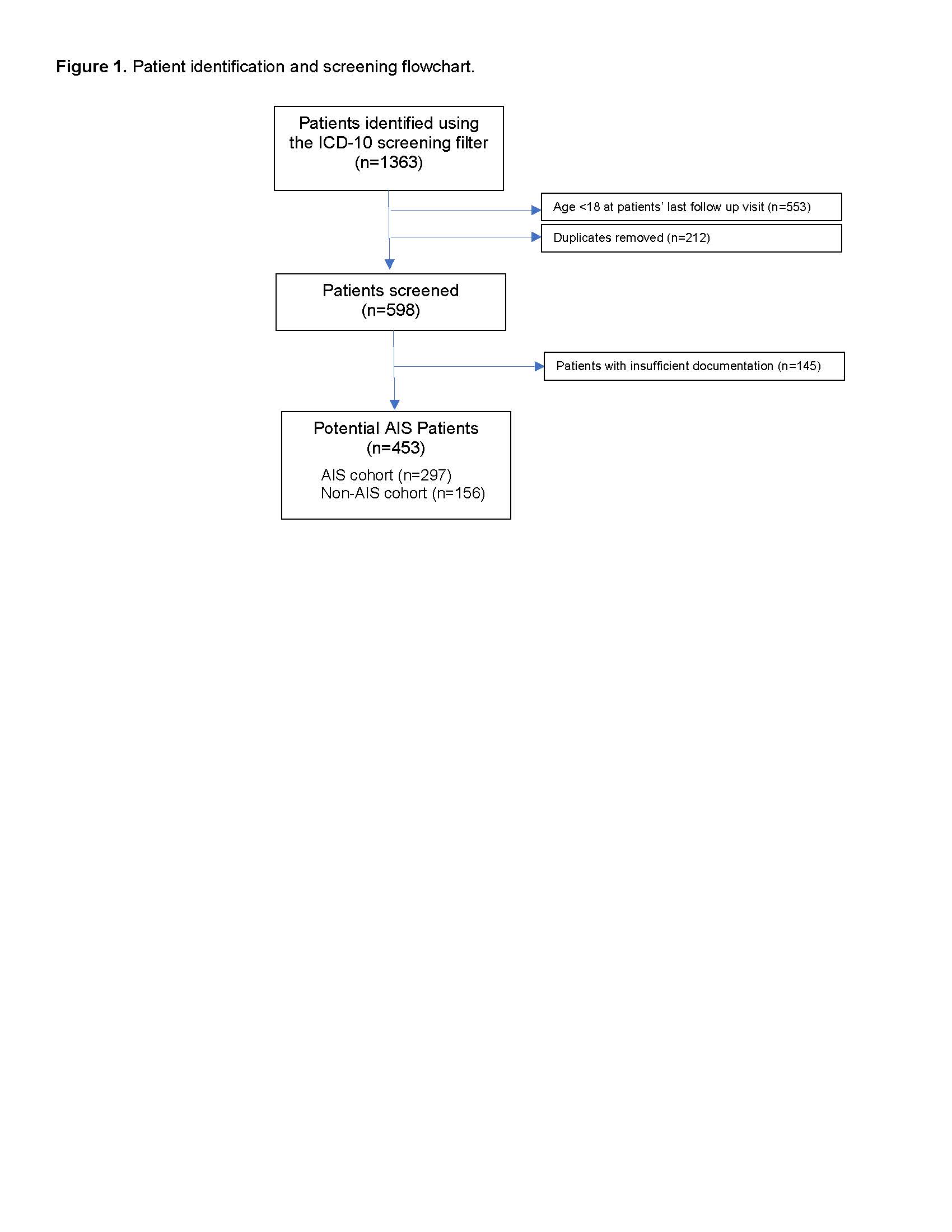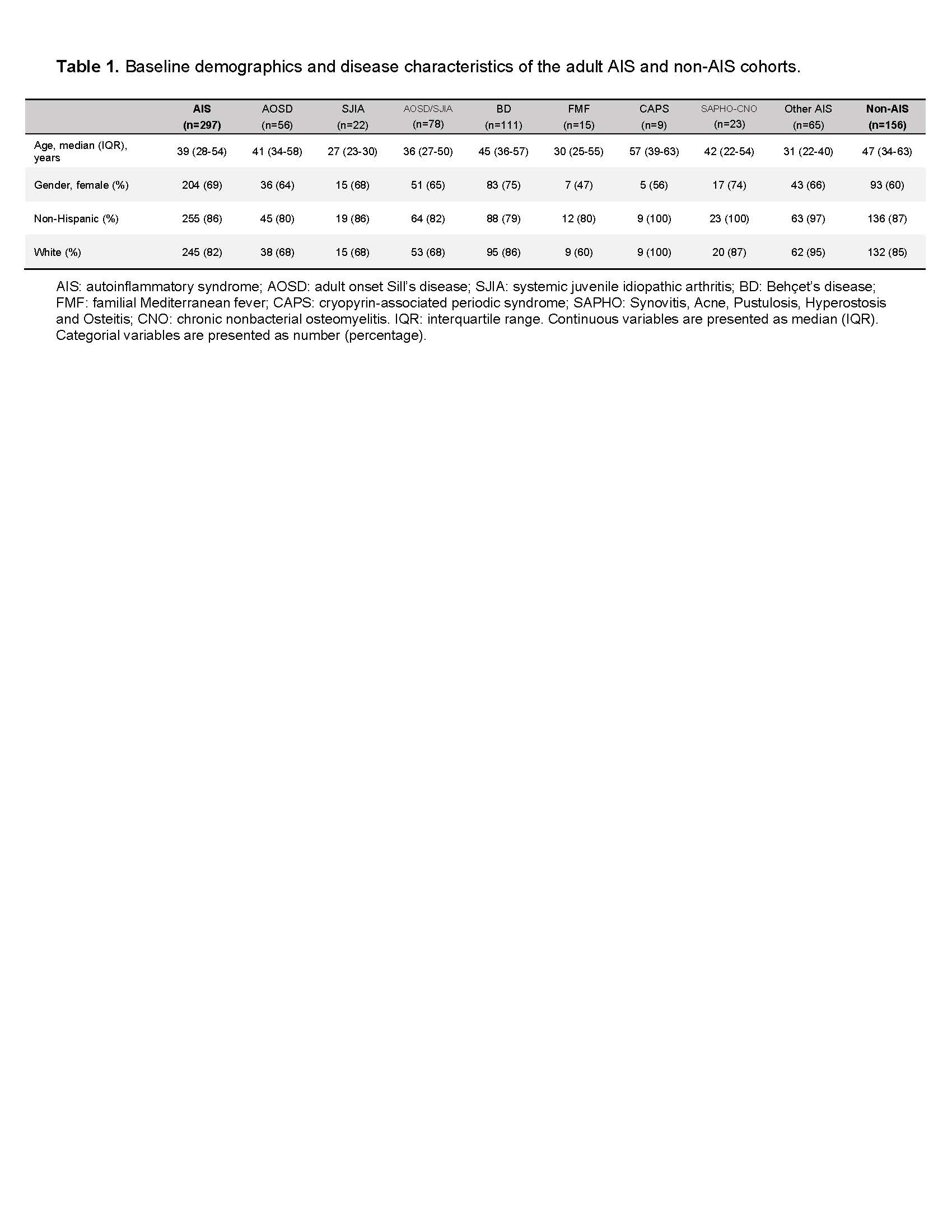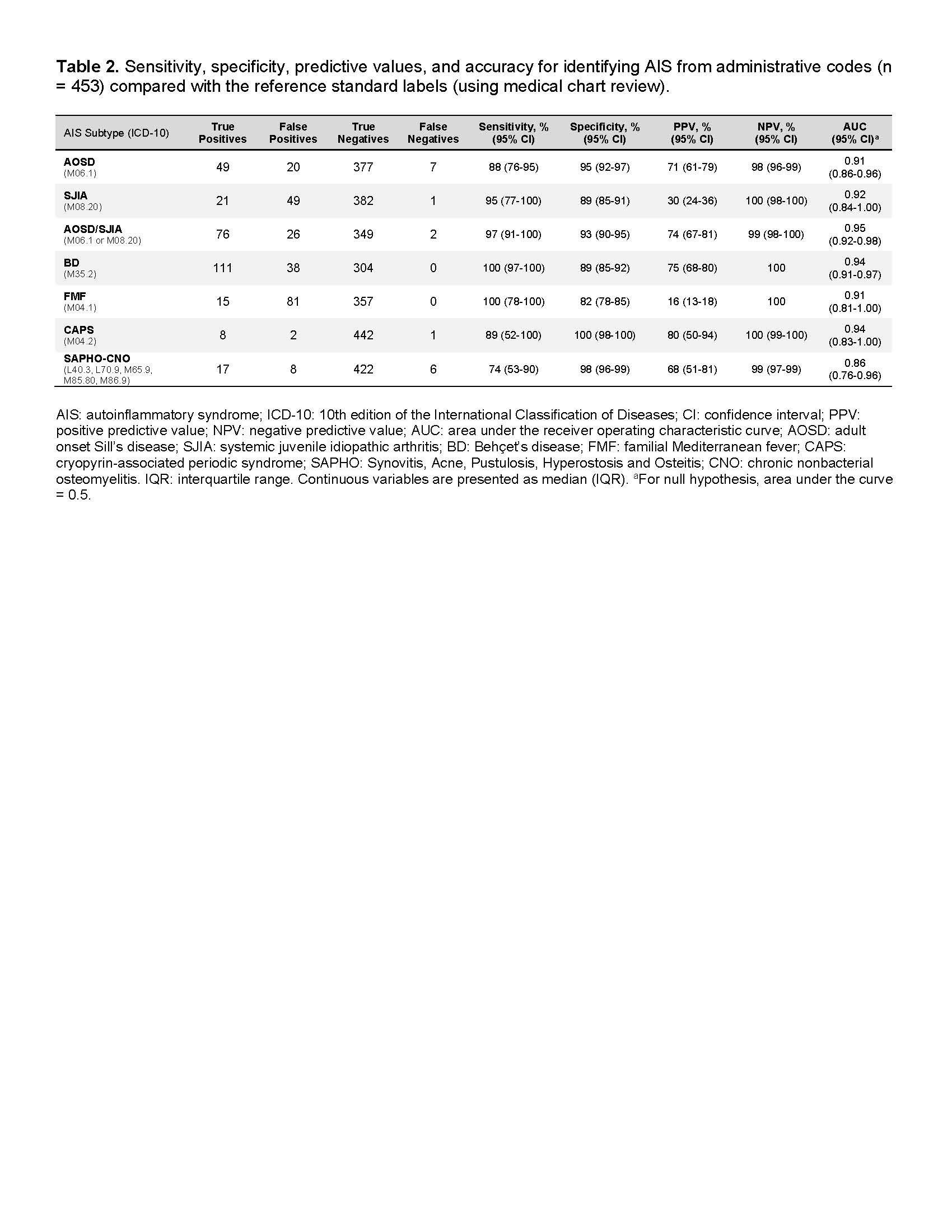Session Information
Date: Monday, November 13, 2023
Title: (1124–1154) Miscellaneous Rheumatic & Inflammatory Diseases Poster II
Session Type: Poster Session B
Session Time: 9:00AM-11:00AM
Background/Purpose: Autoinflammatory syndromes (AIS), a group of rare rheumatic diseases driven by the innate immune system, remain understudied due to the lack of prospective cohorts. Electronic medical record (EMR) and administrative health databases represent an opportunity for clinical outcomes and pharmacoepidemiologic research but rely on accurate cohort building. We sought to determine and validate the accuracy and performance characteristics of administrative claims codes for the diagnosis of AIS.
Methods: Potential AIS patients were identified from the EMR at the University of Iowa Hospitals and Clinics and the Stead Family Children’s Hospital from 2009 through July 2022 using a screening filter comprised of the 10th edition of the International Classification of Diseases (ICD-10) codes. We filtered based on the following ICD-10 codes for AIS subtypes: M06.1 (adult onset Sill’s disease, AOSD), M08.2 (systemic juvenile idiopathic arthritis, SJIA), M35.2 (Behçet’s disease, BD), M04.1 (familial Mediterranean fever, FMF), M04.2 (cryopyrin-associated periodic syndrome, CAPS); and combination of L40.3, L70.9, M65.9, M85.80 and M86.9 for SAPHO syndrome and chronic nonbacterial osteomyelitis (SAPHO-CNO). Medical records were reviewed to determine whether a patient met published criteria for AOSD, SJIA, BD, FMF, CAPS and SAPHO-CNO. Patients age < 18 at last follow-up visit or without supporting documentation to confirm their diagnoses were excluded from the analysis. Patients who did not meet AIS subtype diagnostic criteria, but who were treated for AIS by their specialist were categorized as Other AIS. Otherwise, they were categorized as non-AIS. We determined sensitivity, specificity, positive predictive values (PPV), negative predictive values (NPV), and area under the receiver operating characteristic curve (AUC) of each ICD code or combination of codes for diagnosing each AIS.
Results: The study’s screening flowchart is presented in Figure 1. Baseline demographics of the AIS and non-AIS cohorts are presented in Table 1. Out of the 453 patients with potential AIS, 297 patients had a true AIS diagnosis (AIS prevalence 66%), while 156 patients did not have AIS (non-AIS). The AIS cohort was predominantly female (68.7%) and white (82.5%) with median age of 39 (IQR, 28-54) years. Performance characteristics and accuracy of ICD codes are presented in Table 2. Sensitivity was ≥88% for AOSD, SJIA, BD, FMF and CAPS, while slightly lower for SAPHO-CNO (74%). Specificity was ≥89% for AOSD, SJIA, BD, CAPS and SAPHO-CNO, while slightly lower for FMF (82%). PPV ranged from 68% to 80% for AOSD, BD, CAPS and SAPHO-CNO; in contrast, PPVs were very poor for SJIA (30%) and FMF (16%). NPVs was excellent for all 6 AIS subtypes (≥98%). All ICD codes or a combination of ICD codes for the diagnosis of specific AIS subtypes showed excellent AUCs (≥0.86).
Conclusion: This study validated the performance characteristics and accuracy of ICD-10 administrative codes for diagnosing AOSD, BD, and FMF, and examined novel codes for diagnosing SJIA, CAPS, and SAPHO-CNO. Administrative codes have high accuracy for identifying AIS patients and can be used to construct comprehensive AIS cohorts for future clinical outcomes research.
To cite this abstract in AMA style:
Lee S, Kim S, Segerstrom S, Ferguson P, Lenert A. Accuracy and Performance Characteristics of Administrative Codes for the Diagnosis of Autoinflammatory Syndromes: A Discovery and Validation Study [abstract]. Arthritis Rheumatol. 2023; 75 (suppl 9). https://acrabstracts.org/abstract/accuracy-and-performance-characteristics-of-administrative-codes-for-the-diagnosis-of-autoinflammatory-syndromes-a-discovery-and-validation-study/. Accessed .« Back to ACR Convergence 2023
ACR Meeting Abstracts - https://acrabstracts.org/abstract/accuracy-and-performance-characteristics-of-administrative-codes-for-the-diagnosis-of-autoinflammatory-syndromes-a-discovery-and-validation-study/



